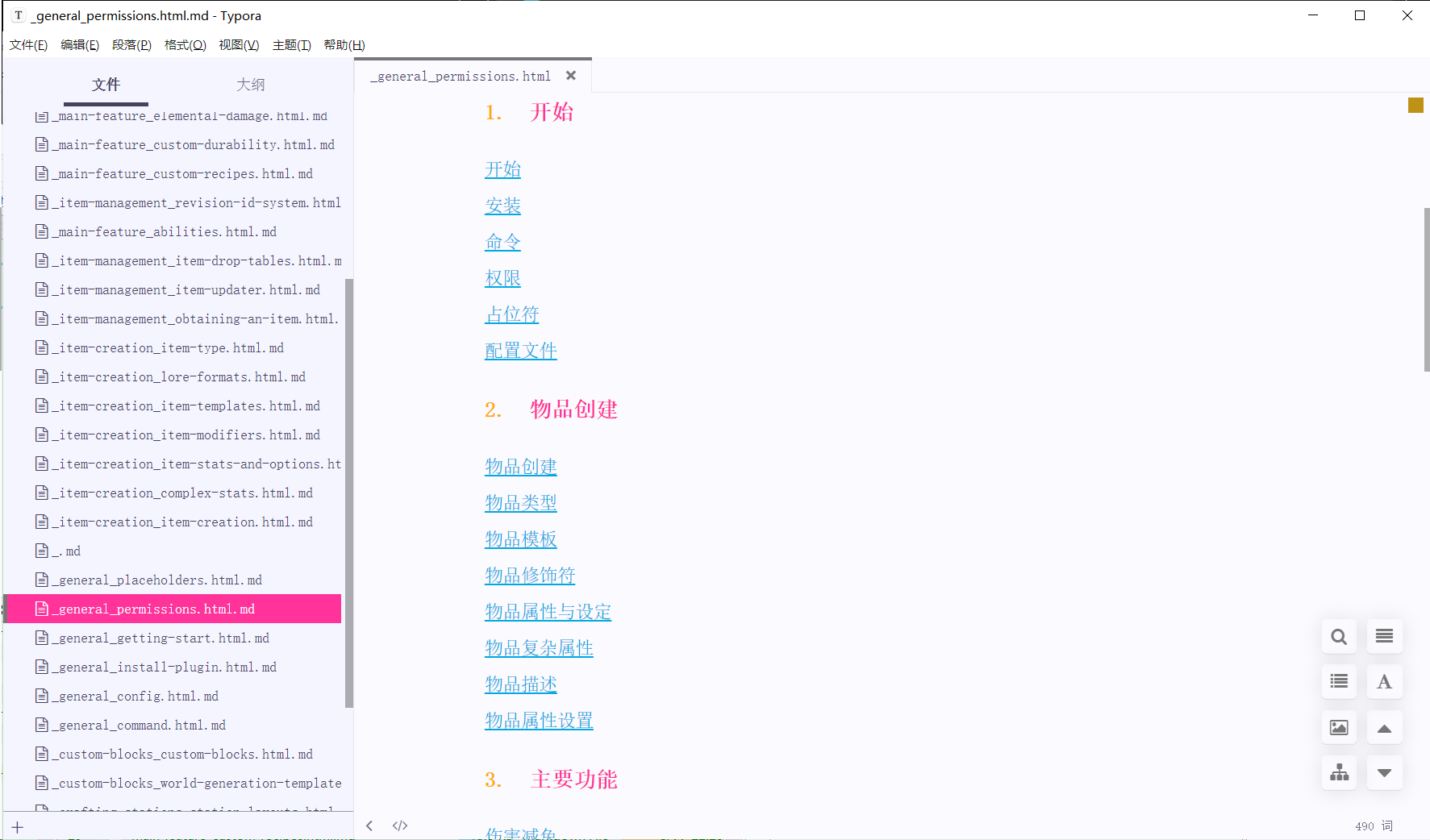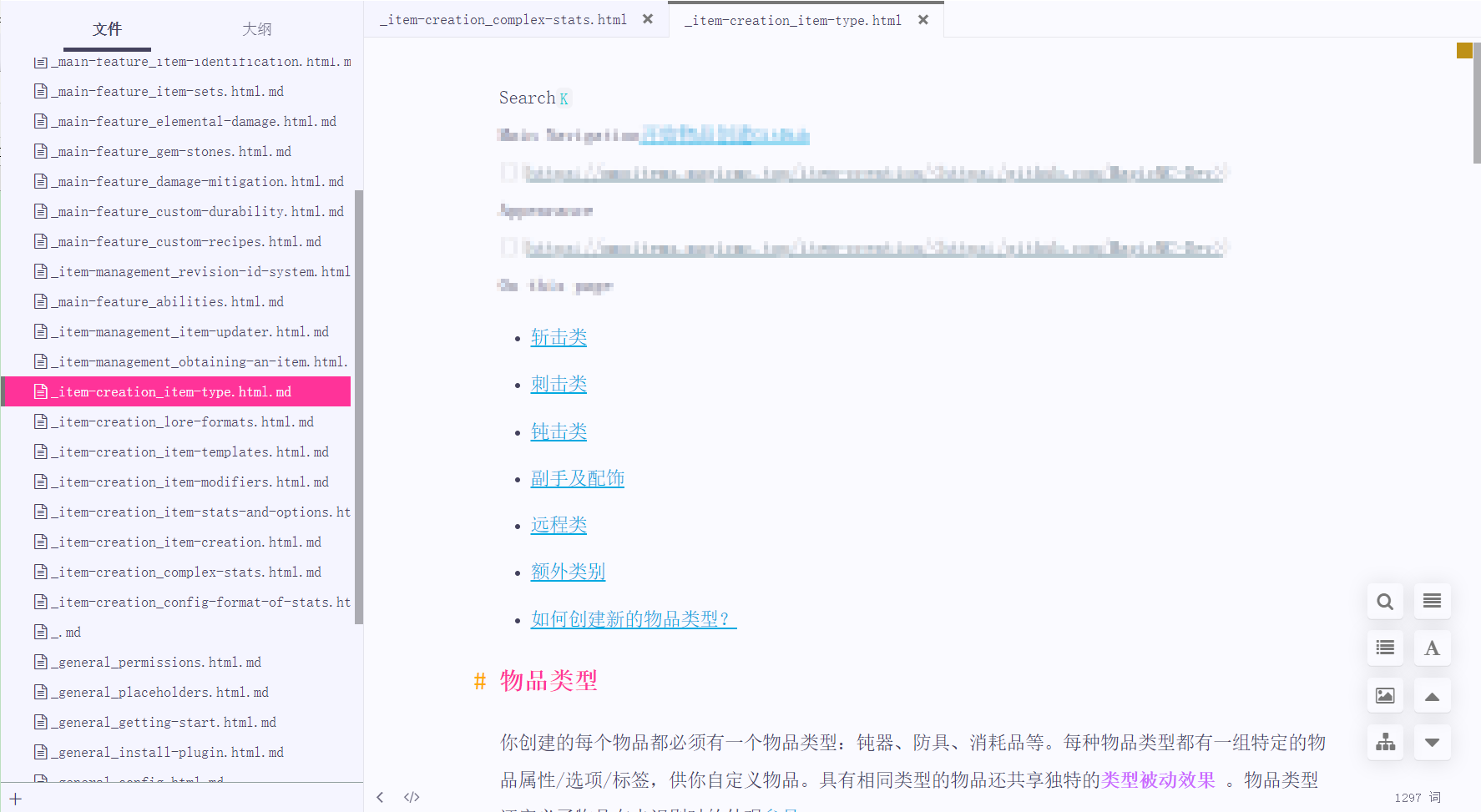考完研后和开了个MC服务器和朋友们玩,之前没研究过,没想到MC服务器能折腾的也太多了,仅仅是各种插件的配置就能让我累死.于是放假回家后准备用LLM框架来将插件的wiki导入知识库,用AI帮我写.
最初使用的是maxkb,但是maxkb一是社区版有限制,还老是提示,很烦.二是不知为什么(可能是我设置的不对),不论怎么修改,AI回复的token长度都很短,并且基本没有记忆(我是修改了的).
昨天尝试安装了dify,但是dify的网页爬虫仅支持Jina Reader和 Firecrawl,两个都是收费的(有免费token,也可以自部署),在研究过程中,了解到了crawl4ai这个开源项目.这个项目可以快速爬取并生成适合LLM知识库的MD文档,并且可以借助LLM大模型帮助爬虫分析网页结构数据.并且我自己使用下来真的是一个很快速,很方便的爬虫框架.写这篇博客不仅是保存一下我用的代码,更是向大家推荐一下
先贴一下github上的官方介绍
- Built for LLMs: Creates smart, concise Markdown optimized for RAG and fine-tuning applications.
- Lightning Fast: Delivers results 6x faster with real-time, cost-efficient performance.
- Flexible Browser Control: Offers session management, proxies, and custom hooks for seamless data access.
- Heuristic Intelligence: Uses advanced algorithms for efficient extraction, reducing reliance on costly models.
- Open Source & Deployable: Fully open-source with no API keys—ready for Docker and cloud integration.
- Thriving Community: Actively maintained by a vibrant community and the #1 trending GitHub repository.
Github:unclecode/crawl4ai: 🚀🤖 Crawl4AI: Open-source LLM Friendly Web Crawler & Scraper
官方文档:Home - Crawl4AI Documentation
单页面爬取
我对crawl4ai的使用主要根据官方文档的代码进行修改(他们的文档真的很棒),单页面爬取我仅贴一下官方的代码不再多说
import asyncio
from crawl4ai import AsyncWebCrawler
async def main():
# Create an instance of AsyncWebCrawler
async with AsyncWebCrawler() as crawler:
# Run the crawler on a URL
result = await crawler.arun(url="https://crawl4ai.com")
# Print the extracted content
print(result.markdown)
# Run the async main function
asyncio.run(main())多页面爬取
会话重用爬取多页面
我最头疼的就是插件的wiki多页面爬取了,crawl4ai很好的解决了问题.
获取urllist我依靠wiki的sitemap,绝大多数的wiki/网站都会有sitemap.
官方文档提供了高性能多页面爬取代码,不再为每个页面都开启一个浏览器,而是一个浏览器开启多个页面,这样不仅节省了资源也加快了速度.下面是我的代码,仅仅是复制了一下官方文档,添加了解析sitemap获取urllist的方法.
import asyncio
from typing import List
from urllib.parse import urlparse
from xml.etree import ElementTree
import requests
from crawl4ai import AsyncWebCrawler, BrowserConfig, CrawlerRunConfig
from crawl4ai.markdown_generation_strategy import DefaultMarkdownGenerator
async def crawl_sequential(urls: List[str]):
print("\n=== Sequential Crawling with Session Reuse ===")
browser_config = BrowserConfig(
headless=True,
# For better performance in Docker or low-memory environments:
extra_args=["--disable-gpu", "--disable-dev-shm-usage", "--no-sandbox"],
)
crawl_config = CrawlerRunConfig(
markdown_generator=DefaultMarkdownGenerator()
)
# Create the crawler (opens the browser)
crawler = AsyncWebCrawler(config=browser_config)
await crawler.start()
try:
session_id = "session1" # Reuse the same session across all URLs
for index,url in enumerate (urls):
result = await crawler.arun(
url=url,
config=crawl_config,
session_id=session_id
)
if result.success:
print(f"Successfully crawled: {url}")
print(f"Markdown length: {len(result.markdown_v2.raw_markdown)}")
with open(f"./result/{urlparse(url).path.replace('/','_')}.md", "w",encoding='utf-8') as f:
f.write(result.markdown_v2.raw_markdown)
else:
print(f"Failed: {url} - Error: {result.error_message}")
finally:
# After all URLs are done, close the crawler (and the browser)
await crawler.close()
def get_pydantic_ai_docs_urls():
"""
Fetches all URLs from the Pydantic AI documentation.
Uses the sitemap (https://ai.pydantic.dev/sitemap.xml) to get these URLs.
Returns:
List[str]: List of URLs
"""
sitemap_url = "https://example.com/sitemap.xml"
try:
response = requests.get(sitemap_url)
response.raise_for_status()
# Parse the XML
root = ElementTree.fromstring(response.content)
# Extract all URLs from the sitemap
# The namespace is usually defined in the root element
namespace = {'ns': 'http://www.sitemaps.org/schemas/sitemap/0.9'}
urls = [loc.text for loc in root.findall('.//ns:loc', namespace)]
return urls
except Exception as e:
print(f"Error fetching sitemap: {e}")
return []
async def main():
urls = get_pydantic_ai_docs_urls()
await crawl_sequential(urls)
if __name__ == "__main__":
asyncio.run(main())并行爬取
crawl4ai也可以同时爬取多个页面,这样在提取很多个页面时可以大大提高速度,代码依旧是官方文档代码+解析sitemap方法.爬取完后会输出爬取失败的链接列表,会自动保存爬取成功的页面保存到指定目录md中(名字方法是我自己写的,可以随意修改)
import os
import sys
from urllib.parse import urlparse
from xml.etree import ElementTree
import psutil
import asyncio
__location__ = os.path.dirname(os.path.abspath(__file__))
__output__ = os.path.join(__location__, "output")
import requests
# Append parent directory to system path
parent_dir = os.path.dirname(os.path.dirname(os.path.abspath(__file__)))
sys.path.append(parent_dir)
from typing import List
from crawl4ai import AsyncWebCrawler, BrowserConfig, CrawlerRunConfig, CacheMode
dirname: str = "dirname"
sitemapurl: str ="https://example.com/sitemap.xml"
crawl_config = CrawlerRunConfig(
cache_mode=CacheMode.BYPASS,
css_selector="div.content"
)
async def crawl_parallel(urls: List[str], max_concurrent: int = 3):
print("\n=== Parallel Crawling with Browser Reuse + Memory Check ===")
# We'll keep track of peak memory usage across all tasks
peak_memory = 0
process = psutil.Process(os.getpid())
def log_memory(prefix: str = ""):
nonlocal peak_memory
current_mem = process.memory_info().rss # in bytes
if current_mem > peak_memory:
peak_memory = current_mem
print(f"{prefix} Current Memory: {current_mem // (1024 * 1024)} MB, Peak: {peak_memory // (1024 * 1024)} MB")
# Minimal browser config
browser_config = BrowserConfig(
headless=True,
verbose=False, # corrected from 'verbos=False'
extra_args=["--disable-gpu", "--disable-dev-shm-usage", "--no-sandbox"],
)
# Create the crawler instance
crawler = AsyncWebCrawler(config=browser_config)
await crawler.start()
try:
# We'll chunk the URLs in batches of 'max_concurrent'
success_count = 0
fail_count = 0
fail_urls = []
for i in range(0, len(urls), max_concurrent):
batch = urls[i : i + max_concurrent]
tasks = []
for j, url in enumerate(batch):
# Unique session_id per concurrent sub-task
session_id = f"parallel_session_{i + j}"
task = crawler.arun(url=url, config=crawl_config, session_id=session_id)
tasks.append(task)
# Check memory usage prior to launching tasks
log_memory(prefix=f"Before batch {i//max_concurrent + 1}: ")
# Gather results
results = await asyncio.gather(*tasks, return_exceptions=True)
# Check memory usage after tasks complete
log_memory(prefix=f"After batch {i//max_concurrent + 1}: ")
# Evaluate results
for url, result in zip(batch, results):
if isinstance(result, Exception):
print(f"Error crawling {url}: {result}")
fail_count += 1
elif result.success:
with open(f"./{dirname}/{urlparse(url).path.replace('/', '_')}.md", "w", encoding='utf-8') as f:
f.write(result.markdown_v2.raw_markdown)
success_count += 1
else:
fail_urls.append(url)
fail_count += 1
print(f"\nSummary:")
print(f" - Successfully crawled: {success_count}")
print(f" - Failed: {fail_count}")
print(f" - Failed URLs: {fail_urls}")
finally:
print("\nClosing crawler...")
await crawler.close()
# Final memory log
log_memory(prefix="Final: ")
print(f"\nPeak memory usage (MB): {peak_memory // (1024 * 1024)}")
def get_pydantic_ai_docs_urls():
"""
Fetches all URLs from the Pydantic AI documentation.
Uses the sitemap (https://ai.pydantic.dev/sitemap.xml) to get these URLs.
Returns:
List[str]: List of URLs
"""
#sitemap_url = "https://itemsadder.devs.beer/chinese/sitemap.xml"
sitemap_url = sitemapurl
try:
response = requests.get(sitemap_url)
response.raise_for_status()
# Parse the XML
root = ElementTree.fromstring(response.content)
# Extract all URLs from the sitemap
# The namespace is usually defined in the root element
namespace = {'ns': 'http://www.sitemaps.org/schemas/sitemap/0.9'}
urls = [loc.text for loc in root.findall('.//ns:loc', namespace)]
return urls
except Exception as e:
print(f"Error fetching sitemap: {e}")
return []
async def main():
urls = get_pydantic_ai_docs_urls()
await crawl_parallel(urls, max_concurrent=10)
if __name__ == "__main__":
asyncio.run(main())一些小tips
crawl_config
我的使用其实都只是皮毛,crawl4ai有更多强劲的方法,譬如在上面的代码中我设置了crawl_config,使用css选择器指定了爬虫页面,这样就可以去除wiki中每个页面都有的header和列表部分.crawl_config还有很多排除配置,可以帮你快速去除指定dom元素内容.还有缓存调节等等,更多的请自己看文档吧.
设置前:
设置后:

Extracting JSON
crawl4ai支持使用json定义爬取数据结构,指定dom元素为特定的元素,这样不仅不需要使用LLM,还有更强的稳定性.在爬取结构性很强的网页时候效果十分好
更多
可以看到其实我的使用场景目前都还没用到LLM协助,因为我只需要爬取下wiki的内容就好了,所以更多更强的内容还是需要你们查看文档自己学习一下.











Comments | NOTHING